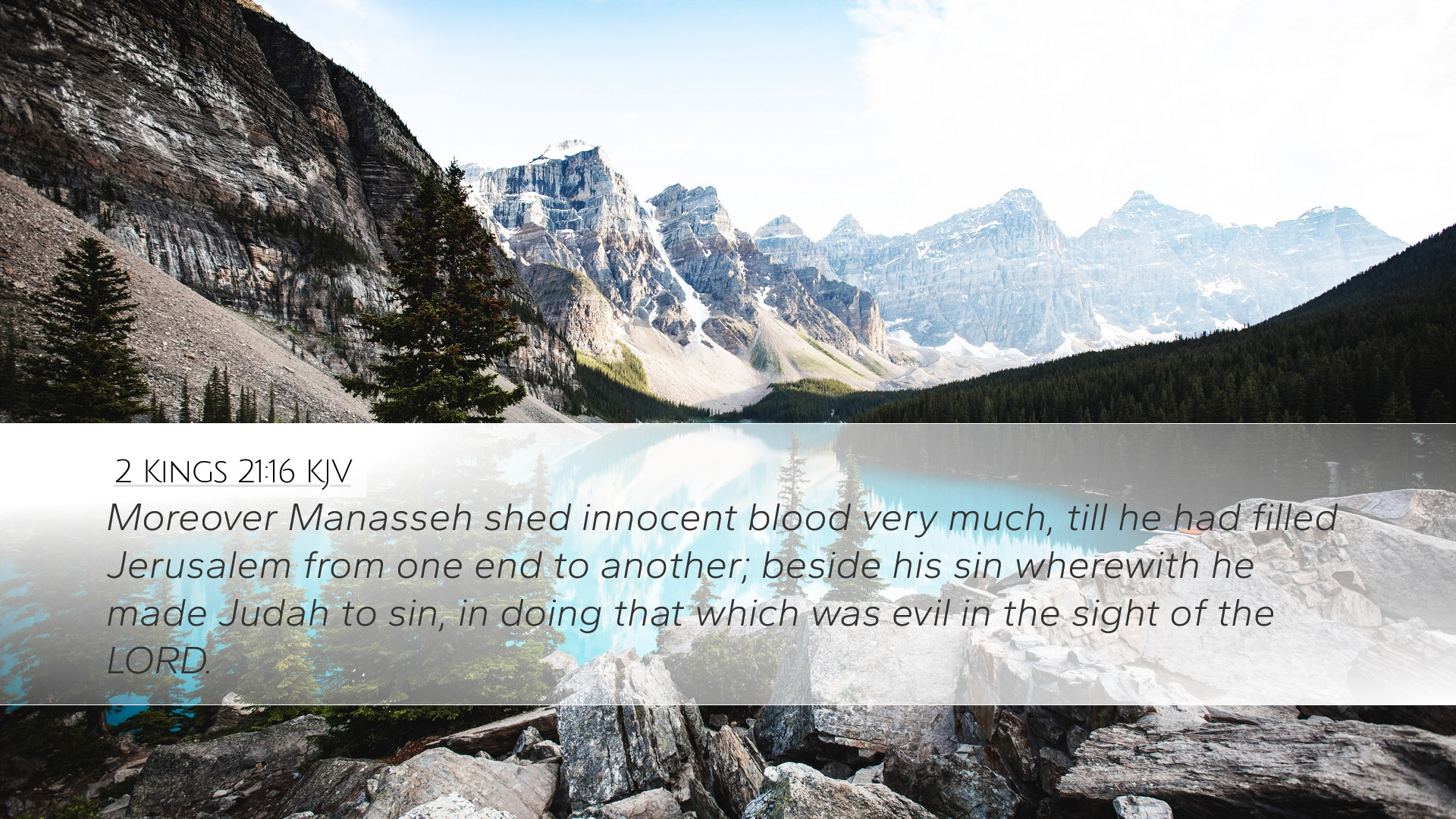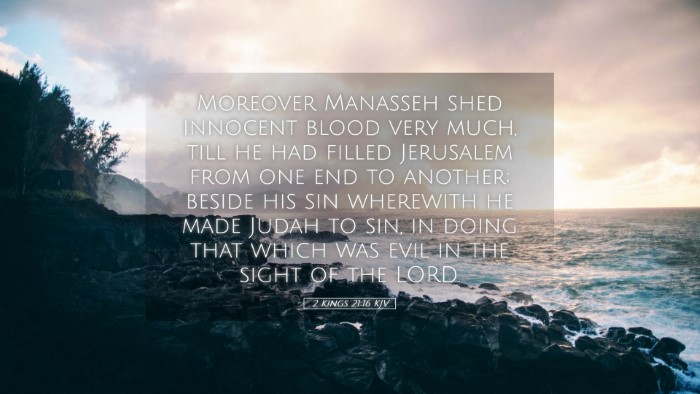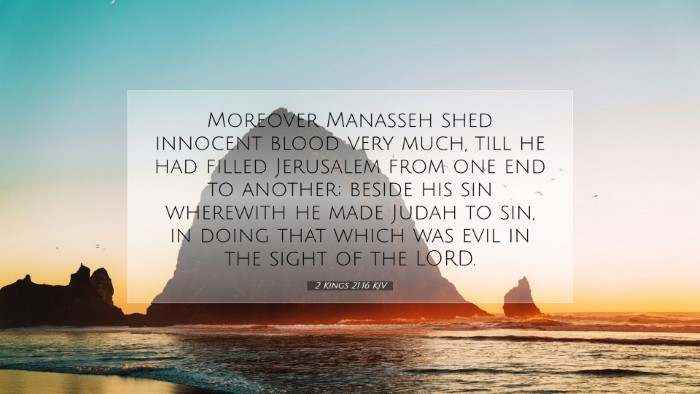Commentary on 2 Kings 21:16
2 Kings 21:16 states:
"Moreover, Manasseh shed innocent blood very much, till he had filled Jerusalem from one end to another; beside his sin wherewith he made Judah to sin, in doing that which was evil in the sight of the Lord."
Introduction
The reign of Manasseh, King of Judah, serves as a significant moment in biblical history, illustrating the consequences of idolatry, evil practices, and moral decay. This commentary seeks to highlight the insights provided by prominent public domain biblical commentators such as Matthew Henry, Albert Barnes, and Adam Clarke, distilling their wisdom for contemporary readers, particularly pastors, students, theologians, and scholars.
Contextual Background
Manasseh ascended to the throne at a young age and had an extensive reign marked by extreme idolatry and infamy. His actions not only represent personal transgression but also led the entire nation of Judah into corruption.
Historical Context
- Political Landscape: Manasseh's reign reflected the complexities of Assyrian dominance and the struggle for religious identity among the Israelites.
- Religious Climate: The period was characterized by a strong pull towards polytheism and local pagan practices that influenced the Israelite community.
- Symbolism of Jerusalem: Jerusalem, as the focal point of worship and identity for the Israelites, becomes intertwined with the graphic description of violence and sin during Manasseh's rule.
Analysis of 2 Kings 21:16
The verse underscores two primary themes: the moral decline under Manasseh and the profound consequences of leading others into sin. The phrase, "shed innocent blood very much," particularly stands out in its severity and implications for both Manasseh and the nation.
The Shedding of Innocent Blood
Matthew Henry emphasizes the severity of Manasseh’s actions, indicating that his cruelty extended beyond mere personal sin to a broader societal decay:
"He filled Jerusalem with innocent blood, which had a cry to Heaven, and this was the most crying sin that could be." - Matthew Henry
This notion of innocent blood sheds light on the gravity of violence against the vulnerable and the dire consequences of such transgressions against God’s justice.
Leading Others into Sin
Moreover, the latter part of the verse speaks to Manasseh's role in leading Judah into sin. Albert Barnes states:
"The enormity of his sin was only exceeded by the evil he brought upon others." - Albert Barnes
This aspect is crucial in understanding leadership's moral responsibility. It is a reminder that the actions of leaders reverberate through the lives of their followers, influencing moral decisions and community integrity.
Consequences of Idolatry and Violence
Adam Clarke notes that the actions of Manasseh exemplify God's profound discontent with idolatry:
"God’s anger is roused when His people turn to idolatry, and the shedding of innocent blood incurs His judgment." - Adam Clarke
Clarke’s reflection invites readers to consider the spiritual ramifications of turning away from God's commandments and the call for repentance amidst such a backdrop of sin.
Impact on Future Generations
The severe implications of Manasseh’s reign permeate the fabric of Judah's future, ultimately leading to divine judgment and exile. The sin and violence initiated during his time have a legacy that shapes the prophetic warnings and the eventual downfall of Jerusalem.
Theological Reflections
- Dorothy Sayers: Highlights the paradox of redemption in light of such overwhelming sin, suggesting that only through repentance can there be hope.
- Reformed Tradition: The doctrine of total depravity corresponds with a sober acknowledgment of humanity's propensity towards sin, seen in Manasseh’s reign.
Application for Today
This historical narrative and its commentary provide several key applications for contemporary readers:
- Leadership Accountability: Leaders must be aware of their influence on others and strive for righteousness, reflecting on the impact of their choices.
- The Weight of Sin: The narrative serves as a stark reminder of the hypocrisy associated with false worship and the urgent need for genuine faithfulness to God.
- Call to Repentance: Recognizing the capacity for sin, both individually and communally, invites believers to seek repentance and restoration actively.
Conclusion
2 Kings 21:16 serves as a severe warning against idolatry, violence, and the trivialization of innocent life. As noted by the commentators, the severity of Manasseh's reign provides deep insights into the nature of sin and its capacity to lead nations away from God. In the light of modern challenges, this text compels a return to foundational truths about righteousness, community responsibility, and the profound need for divine grace in addressing our own tendencies towards sin.


